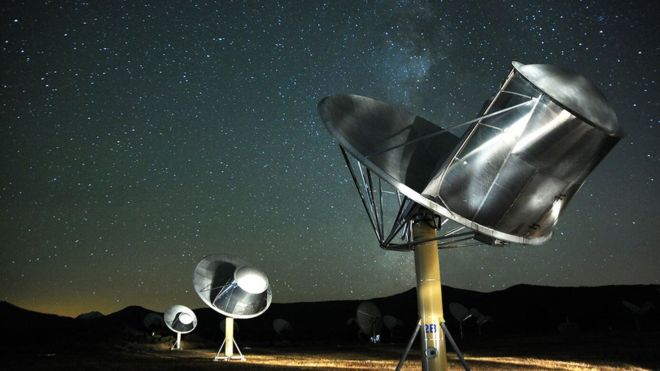
The head of one of the US’s national observatories says the search for intelligent life elsewhere in the universe needs to be taken more seriously.
Dr Anthony Beasley told the BBC that there should be greater government support for a field that has been shunned by government research funders for decades.
His backing for the search for extra-terrestrial intelligence (Seti) marks a sea change in attitudes to a field regarded until recently as fringe science.
Dr Beasley made his comments at the American Association for the Advancement of Science meeting in Seattle.
The director of the US National Radio Astronomy Observatory in Charlottesville in Virginia said that it was now “time for Seti to come in from the cold and be properly integrated to all other areas of astronomy”.
Dr Beasley’s comments come as one of the private sector funders of Seti research announced that the Very Large Array (VLA) observatory in New Mexico would be joining the effort to detect signs of intelligent life on other worlds.
The VLA is a multi-antenna observatory and home to what is regarded as one of the best-equipped telescopes in the world.
According to Dr Andrew Siemion, leader of the Breakthrough Listen science team at the University of California, Berkeley’s Seti Research Centre, the incorporation of the VLA would increase the chances of finding intelligent life by “10- or even 100-fold”.
“We are now set for the most comprehensive all-sky survey [for extra-terrestrial intelligence] that has ever been accomplished,”

